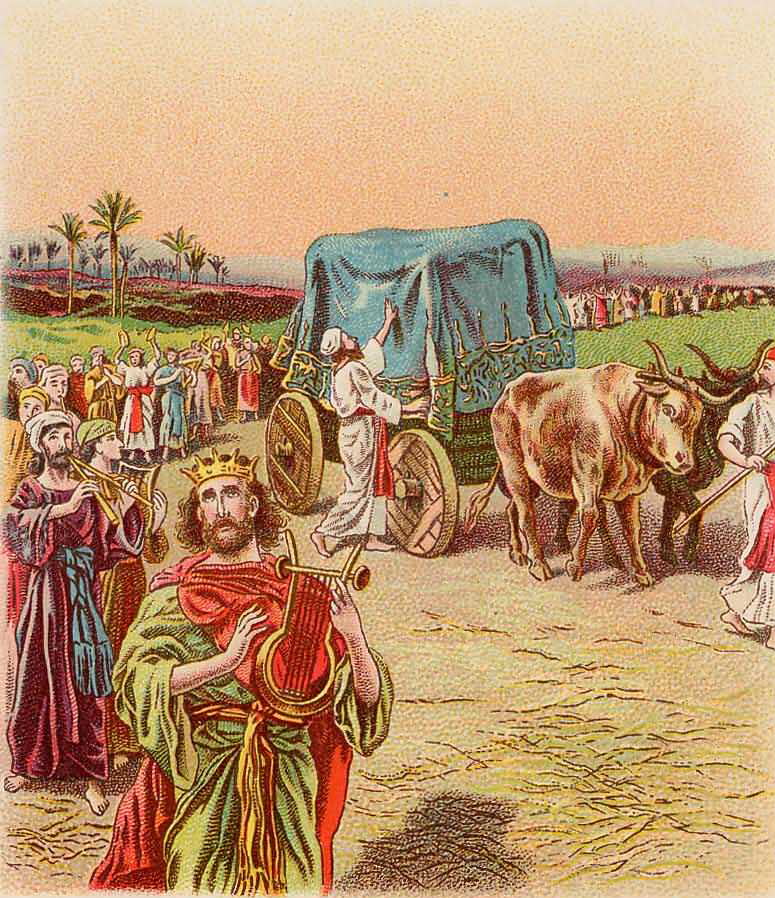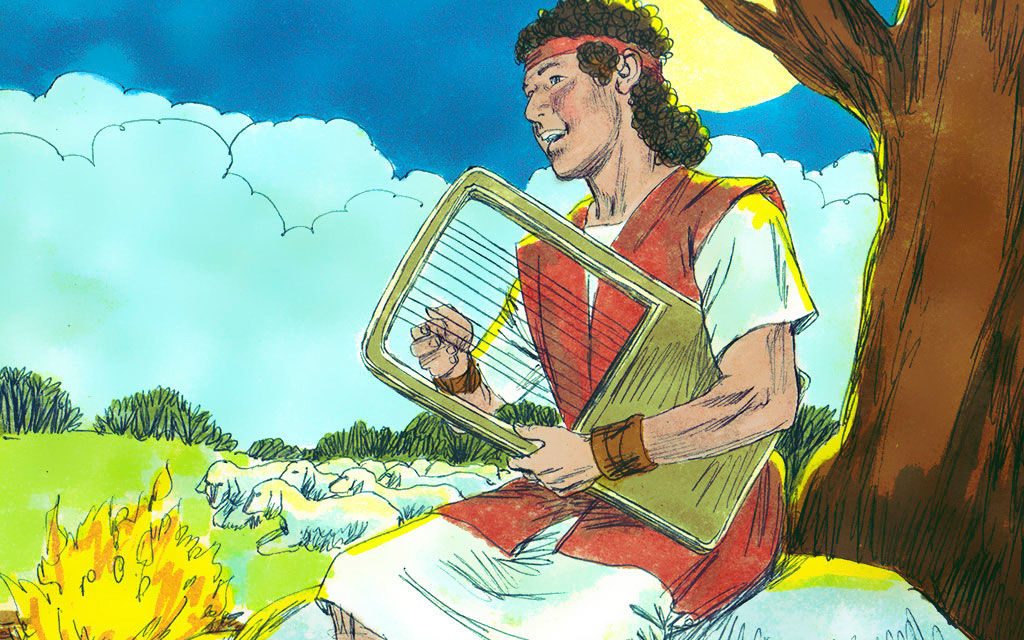حضرت داوود (ع)
King Davidحضرت داوود (ع)
King DavidKing David-پادشاه مقدس داوود
confronted Saul. Saul broke down and admitted that David would one day be king and
asked David to swear that he would not destroy Saul’s descendants or wipe out Saul’s
name. David swore to this, but it did not stop Saul from continuing to pursue him.
While David was out battling a tribe called the Amalekites, Saul and Jonathan were killed
on Mt. Gilboa in a fight with the Philistines. David mourned their loss, but then it was
time for David to step up as King of Judah and begin a new stage in his life.
David’s first action as king was to capture what is now the City of David in Jerusalem,
fortify it and build himself a palace. Once David had established the safety of his
kingdom, he brought the Holy Ark, which had been passed from city to city, to
Jerusalem. David then began fighting wars against Israel’s neighbors on the east bank
of the Jordan. He defeated the Moabites, the Edomites, the Ammonites and the



پادشاه مقدس داوود
The biblical King David of Israel was known for his many skills as a musician, a warrior,
a King, a poet and writer of psalms. In his 40 years as ruler, between approximately
1010 and 970 B.C.E., he united the people of Israel, led them to victory in battle,
conquered land and paved the way for his son, Solomon, to build the First Temple.
Almost all knowledge we have of him is from the Biblical books of
Prophets and Writings: Samuel I and II, Kings I and Chronicles I
David's Early Life
David was the eighth and youngest son of Jesse from the kingly tribe of Judah. He
began his life as a shepherd in Bethlehem. One day, the Lord directed
the prophet Samuel to "fill his horn with oil" and go to Jesse the Bethlehemite (from the
town of Bethlehem), “for I have provided for myself a king among his sons" (1 Samuel
16:1). When Samuel appeared before Jesse and his sons, the Lord pointed Samuel's
eyes to David, Jesse's youngest son. The prophet anointed the boy with oil, so that "the
spirit of the Lord came mightily upon David from that day forward" (Samuel 16:13).
David simply returned to tending his sheep. This proclamation by the prophet Samuel
happened without the knowledge of the current king, Saul.
David the shepherd was known to be fearless and became a legend during one
memorable time of combat when the Israelites were being subjected to their domination
and bullying. David’s bothers were doing battle against the Philistines tribes and were at
a standoff at a ravine. The Philistine commander suggested staging a battle between
each camps top warrior but then he sent out the nine and a half foot tall Goliath who
shouted, “Choose one of your best men and let him come down against me!” For days
no Israelite wanted to confront him in battle. When David’s goes to the nearby battle
site to bring his older brothers’ food, he is shocked by how demoralized the troops have
become because of Goliath’s taunts. So young David decides to confront Goliath. He
refuses the offer of King Saul’s heavy armor, and instead places a single large, smooth
stone in his sling. He lets it fly strong and fast and it knocks down and kills the giant
with a single stone to his head.
After this act of bravery, Saul took David on as commander of his



























